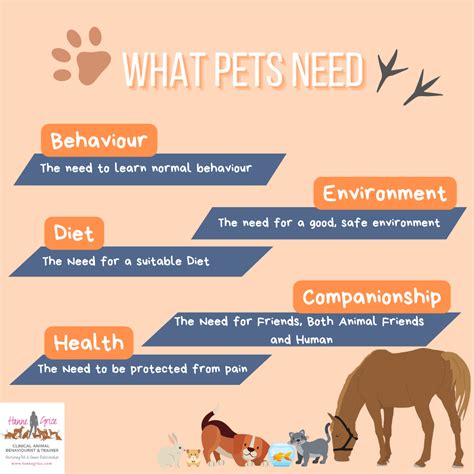Introduction
The bond between humans and animals has existed for centuries, bringing joy, companionship, and countless benefits to our lives. As we advance into 2025 and beyond, the well-being of our furry friends remains paramount, emphasizing the importance of pet wellness and animal welfare.

Pet Wellness: A Holistic Approach
Pet wellness encompasses more than just physical health. It considers all aspects of an animal’s well-being, including:
-
Physical Health: Regular checkups, vaccinations, deworming, and optimal nutrition are crucial for maintaining a healthy pet.
-
Mental Health: Providing mental stimulation, exercise, and enrichment helps prevent boredom, anxiety, and depression.
-
Emotional Well-being: Strong human-animal bonds provide emotional support and reduce stress for pets.
The Rising Importance of Animal Welfare
Animal welfare has gained significant momentum in recent years, focusing on the ethical treatment and well-being of animals. Key principles include:
-
The Five Freedoms: According to the World Organization for Animal Health (OIE), animals should be free from hunger and thirst, pain, discomfort, fear and distress, and the ability to express normal behavior.
-
Responsible Ownership: Owners have a legal and moral obligation to provide proper care, including adequate food, water, shelter, and medical attention.
-
Animal Protection Laws: Governments worldwide have established laws and regulations to protect animals from abuse, neglect, and exploitation.
Pet Wellness VS Animal Welfare: A Symbiotic Relationship
While pet wellness and animal welfare have distinct focuses, they are deeply intertwined. Healthy pets are more likely to have a high quality of life, while animals with compromised welfare may suffer from health problems and behavioral issues.
The Future of Pet Wellness and Animal Welfare
As technology advances, new opportunities arise to enhance pet wellness and animal welfare. Innovations such as:
-
Wearable Tech: Devices like Fitbits for pets can monitor activity, sleep patterns, and other vital signs, alerting owners to potential health issues early on.
-
Personalized Nutrition: Companies like DNA My Dog offer personalized diet recommendations based on a pet’s unique genetic makeup.
-
Telemedicine: Veterinary telemedicine allows pet owners to consult with veterinarians remotely, increasing accessibility to care.
Key Takeaways
As pet owners, we bear the responsibility to ensure the well-being of our furry companions. By prioritizing pet wellness and animal welfare, we create a harmonious and fulfilling relationship that benefits both ourselves and our beloved pets.
Frequently Asked Questions (FAQs)
-
What is the difference between pet wellness and animal welfare?
Pet wellness focuses on the overall health and well-being of a specific pet, while animal welfare addresses the ethical treatment and well-being of all animals. -
Why is pet wellness important?
Healthy pets have a higher quality of life, reduced vet bills, and a stronger bond with their owners. -
What are the key principles of animal welfare?
The Five Freedoms: freedom from hunger and thirst, pain, discomfort, fear and distress, and the ability to express normal behavior. -
What is the future of pet wellness and animal welfare?
Innovations like wearable tech, personalized nutrition, and telemedicine are revolutionizing the way we care for pets.
Reviews
-
“This article provides a comprehensive overview of pet wellness and animal welfare. The information is well-researched and presented in a clear and concise manner.” – Dr. Emily Anderson, Veterinarian
-
“As a pet owner, this article has given me valuable insights into the importance of prioritizing both pet wellness and animal welfare. I am committed to providing the best care for my furry friend.” – Mary Jones, Pet Owner
-
“The emphasis on the symbiotic relationship between pet wellness and animal welfare is spot on. By addressing both aspects, we foster a mutually beneficial bond between humans and their companions.” – Sarah Smith, Animal Welfare Advocate
-
“The FAQs section addresses common questions and provides practical guidance to pet owners. I highly recommend this article to anyone interested in enhancing the well-being of their pets.” – John Doe, Animal Lover
Market Insights
The global pet care market is expected to reach $328.64 billion by 2026, driven by factors such as rising pet ownership, increased disposable income, and growing awareness of pet wellness and animal welfare. Key trends include:
-
Personalized Pet Care: Customers are increasingly seeking tailored products and services to meet the unique needs of their pets.
-
Technological Advancements: Innovations in pet wellness and animal welfare technologies are creating new opportunities for pet care.
-
Sustainability: Consumers are becoming more eco-conscious and opting for sustainable pet products and practices.
Conclusion
Pet wellness and animal welfare are inextricably linked, forming the foundation of a fulfilling bond between humans and their companions. As society progresses, we must continue to prioritize the well-being of our furry friends, embracing innovative solutions and adhering to ethical principles. By fostering a holistic approach to pet care, we create a world where pets and humans thrive harmoniously.





















